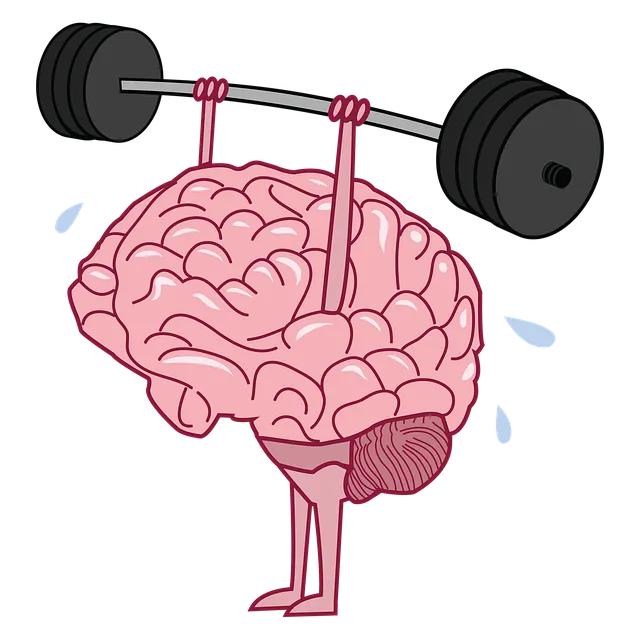Mental wellness program evaluation in Louisville, facilitated by Kaiser's mental health therapy coverage, combines quantitative (surveys, stats) and qualitative (interviews, focus groups) methods to assess program success. This data guides tailored interventions for diverse needs, from stress reduction through mindfulness meditation to specialized trauma support, enhancing overall mental well-being. Effective evaluation strategies include pre/post testing and personal journal reflections, utilizing Kaiser's resources like risk assessment tools. Louisville residents benefit from comprehensive care addressing acute and long-term mental health concerns.
Mental wellness program evaluation is a critical aspect of ensuring effective support systems. In Louisville, understanding how programs like Kaiser’s coverage for therapy can impact mental health is essential. This article explores various evaluation methods, from assessing program effectiveness to measuring and enhancing overall impact. By examining specific strategies, we aim to guide organizations in optimizing their mental health initiatives, especially in light of questions regarding Kaiser’s coverage for therapy in Louisville.
- Understanding Mental Wellness Program Evaluation
- Kaiser's Coverage for Therapy in Louisville
- Effective Assessment Methods for Mental Health
- Measuring and Enhancing Program Impact
Understanding Mental Wellness Program Evaluation

Mental wellness program evaluation is a crucial process that assesses the effectiveness and impact of mental health initiatives. It involves systematic methods to gather and analyze data, ensuring these programs meet their intended goals. By understanding the specific needs of individuals within communities, such as Louisville or areas where Kaiser’s mental health services are accessible, evaluators can tailor interventions accordingly. This approach is essential for organizations aiming to enhance mental well-being, as it allows them to measure success, identify areas for improvement, and make data-driven decisions.
Evaluating mental wellness programs requires a combination of quantitative and qualitative methods. Quantitative techniques involve measuring outcomes through surveys, statistical analysis, and tracking key performance indicators. On the other hand, qualitative strategies, including interviews and focus groups, delve into participants’ experiences, providing insights into the program’s impact on their lives. Balancing these approaches ensures a comprehensive understanding of mental health awareness, empathy-building strategies, and communication methods employed within these programs, ultimately leading to more effective support systems for individuals seeking therapy.
Kaiser's Coverage for Therapy in Louisville

In Louisville, Kaiser’s coverage for mental health therapy offers a comprehensive range of services designed to support individuals’ well-being. The healthcare provider ensures access to qualified therapists and counselors through various programs tailored to different needs. For those seeking professional help, Kaiser facilitates effective communication strategies and conflict resolution techniques, contributing to improved mental wellness.
The integration of mindfulness meditation as part of these programs is notable. Mindfulness practices have been shown to reduce stress, enhance emotional regulation, and promote overall mental resilience. Louisville residents covered by Kaiser can benefit from these evidence-based approaches, enabling them to navigate life’s challenges with greater equanimity and clarity.
Effective Assessment Methods for Mental Health

Effective assessment methods are crucial when evaluating mental wellness programs, especially considering the diverse nature of mental health concerns. In Louisville, Kaiser’s coverage of mental health therapy plays a significant role in providing accessible care. Beyond insurance scope, community-based initiatives and non-profit organizations offer valuable trauma support services tailored to local needs. These services often employ innovative techniques, such as evidence-based therapeutic models, to address issues like burnout prevention among healthcare providers—a growing concern given the high-stress nature of the profession.
By integrating these strategies, mental wellness programs can effectively assess and cater to a broader spectrum of individuals seeking support. For instance, focusing on both acute conditions and long-term management, programs can implement tailored interventions for depression prevention, ensuring comprehensive care that addresses root causes and promotes resilience. This holistic approach, informed by diverse assessment methods, ultimately enhances the effectiveness of mental wellness initiatives.
Measuring and Enhancing Program Impact

Evaluating a mental wellness program’s impact involves quantifying its effectiveness and measuring improvements in key areas, such as self-esteem and overall mental health. One effective method is through pre-post testing, comparing participant scores on standardized assessments before and after the program to gauge changes. This data can reveal significant gains or areas that require further attention.
Additionally, Louisville’s Kaiser network offers valuable insights with its coverage of mental health therapy. Their services cater to various needs, including risk assessment tools for professionals, which can aid in identifying potential issues and implementing targeted interventions. Encouraging participants to maintain a mental wellness journal can also provide qualitative data, offering personal reflections on their journey and specific exercises that contributed to self-esteem improvement.
Evaluating mental wellness programs is essential to ensuring their effectiveness and impact. By utilizing a combination of assessment methods, such as surveys, interviews, and data analysis, organizations like Kaiser can measure the success of their initiatives in Louisville and beyond. Understanding what works and identifying areas for improvement is crucial to enhancing mental health support and ultimately improving lives. In light of this, both Kaiser’s coverage for therapy in Louisville and effective evaluation methods play a significant role in fostering better mental wellness outcomes.






